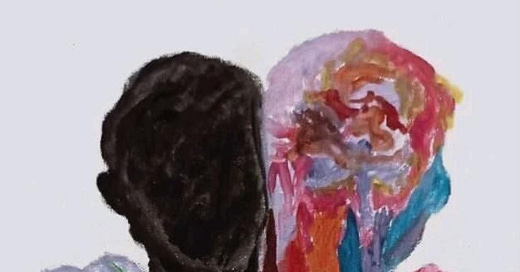When I reflect back on ten years with herpes, a lot comes up. Yes, some of it is boring, like I shared in my last post. Some of it is full of happiness and joy, and stories with friends, and others are shades of darkness—not just because of herpes, but because of heartbreak, the pandemic, and career hardships.
I’ve talked a lot about healing from my last relationship, healing through therapy, and having to move home because of it. But what I haven’t spoken about is how this person impacted my self-concept after herpes.
People always talk about “the one that got away” or emphasize the “what if” in dating. Even as someone who studied sex and relationships, I’m not immune to questions of humanity. Especially after the pandemic, I think those voices were louder than ever.
During the lockdown, isolation amplified the voices of those we missed. After cleaning every room in my apartment, I had more time to daydream. And daydream I did.
Throughout my twenties I had one serious, long-term relationship. Over ten years, you could divide the relationship into three parts. Somewhere between beginning and end, before and after, and now and then, there was a whisper of “What if?”
You might know him as the guy that I lived with—twice. You might know him at the guy who emotionally abused and gaslit me. You might also know him as the first person to accept me for my herpes status.
It’s hard to reconcile someone that did bolster my self-esteem for a period of my life as the same person who drifted me so far from myself. It’s hard to rationalize how I went back to him time and time again, despite the abuse, while also recognizing how integral his acceptance was in my healing.
From the outside looking in, it’s so easy to pinpoint the red flags and incompatibility, but this is a story where history reigns supreme.
After a diagnosis, many of us prioritize acceptance. By that I mean, we are in such a place of despair that we might engage or sleep with some people because of their willingness to accept our herpes status. It becomes a green flag, even amidst a sea of red flags. We trade pieces of ourselves for the comfort of being seen, even if what's being seen is just a fragment.
“He doesn’t care if I have herpes, that’s a good sign, right?”
Yeah, it can be a good sign. But it doesn’t mean they’re a good person, or “the one.”





